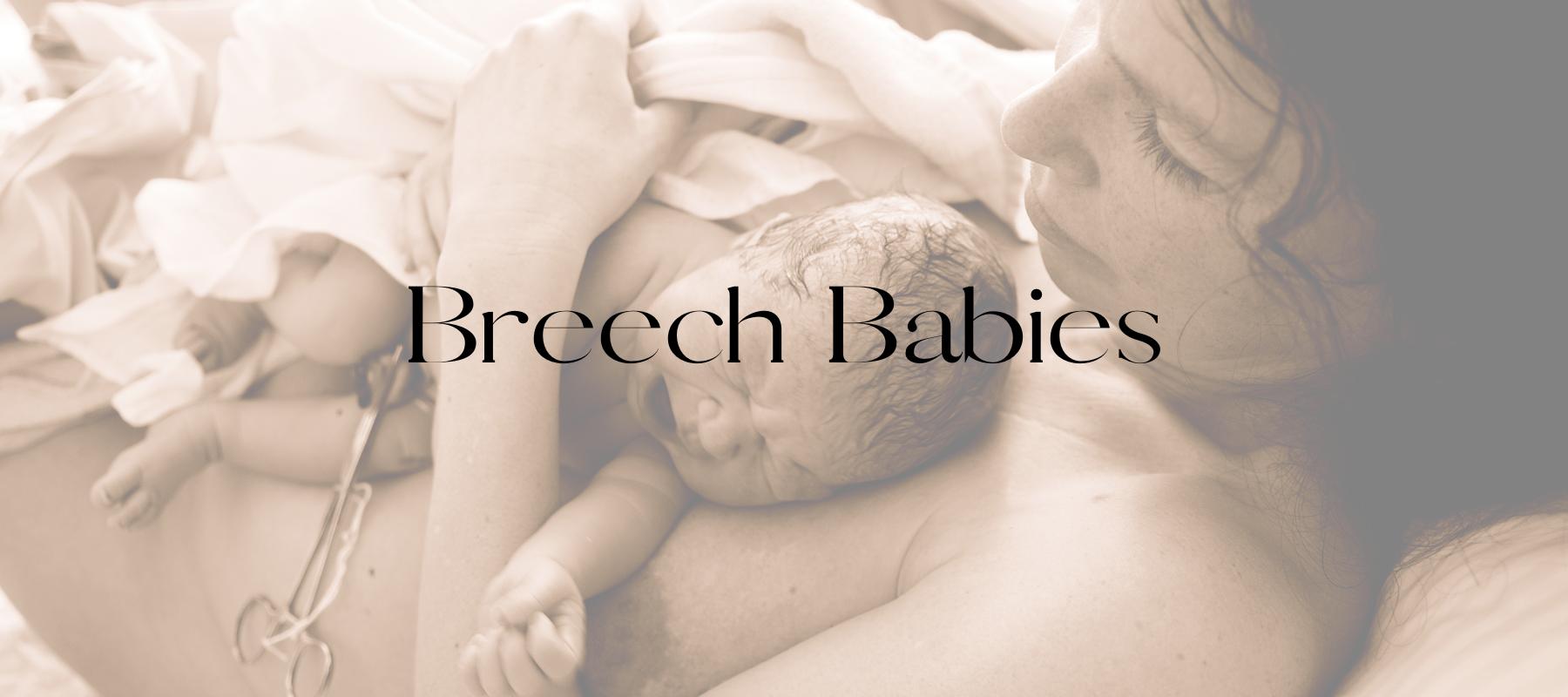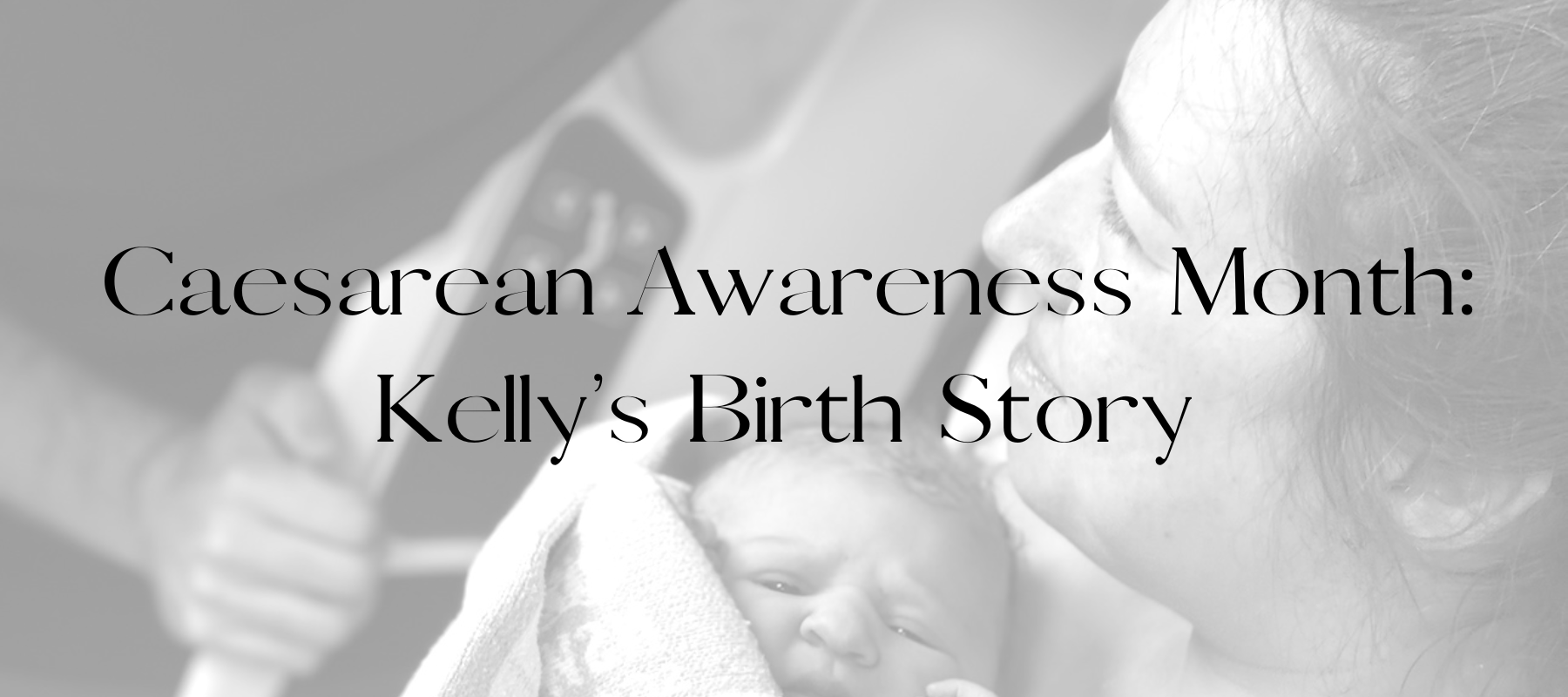TW: This blog post discusses postnatal depression and anxiety
The transition to motherhood often represents a very emotionally vulnerable stage in a woman’s life. Over the past several decades, postpartum depression and anxiety disorders have been extensively researched to determine cause - as well as explore various approaches to early recognition and treatment.
Postnatal depression (PND) is a pregnancy/postpartum disorder that is diagnosed >14days following delivery. Often thought to be exacerbated by the fluctuations of hormones in pregnancy, PND is recognised as one of the most common complications following childbirth.
This defines postnatal depression as more severe then just the initial ‘baby blues’ you may experience in the first few days after the birth of your baby.
Here are some of the signs and symptoms of PND:
- Low mood/energy most of the time
- Often feeling teary/sad
- Over/undereating
- Feeling panicked, anxious or overwhelmed
- Thoughts of ‘I can’t do this’ ‘I’m not coping’
- Having difficulty thinking clearly and making decisions
- Loss of interest in activities that are usually enjoyable
- Difficulty looking after yourself and completing everyday tasks
- Withdrawing from friends/family
- Afraid to be alone with your baby
- Afraid to leave the house
- Thoughts of self-harm or harming your baby*
Who is at risk?
History of depression/anxiety and other mood disorders - It has been found that women who have a history of anxiety and/or depression were at a higher risk for developing PND following delivery. This may be due to a range of pre-existing factors which may make you more susceptible; such as hormone imbalances, chronic life stresses and family history of mental illness.
Lack of support from significant other/family – During the transition to parenthood, women often experience substantial physical, psychological and emotional changes. Lack of support from your partner and/or family can have a negative impact on stress levels and ability to adjust effectively.
Unexpected labour/birth outcomes – Women who experience unexpected interventions, labour/birth complications and increased recovery periods are found to be at greater risk of developing Postnatal depression.
Infant complications – Women who suffered from PND were more likely to have experienced adverse infant outcomes such as small for gestational age (SGA) babies, preterm birth and low birth weight infants.
Breastfeeding difficulties - Difficulty breastfeeding is commonly recognised in women suffering symptoms of postnatal depression. It has been suggested this may be due to decreased confidence, inability to respond appropriately to infant feeding cues and negative connotations associated with a crying, hungry baby. The often-unplanned inability to exclusively breastfeed can lead to perceived ‘failure’, furthering negative associations to motherhood.
How can breastfeeding help?
- Oxytocin release during breastfeeding helps boost your mood and promotes bonding, attachment and relaxation.
- Breastfeeding decreases your cortisol (stress) response
- Studies suggest an association between breastfeeding and postpartum depression: not engaging in breastfeeding may increase risks of postpartum depression
- Formula feeding or mixed feeding has been associated with higher levels of postnatal depression when compared to mothers who exclusively breastfed (research conducted on woman >5months postpartum)
- Breastfeeding can promote hormonal processes that are critical during the recovery period
- Helps regulate sleeping and wake patterns for mother and baby
- Improves mother’s self-efficacy
What can you do?
If you (or your family) have a history of depression/anxiety, it is important you are proactive to monitor your own mental wellbeing before and after your baby is born. Try to ensure you have adequate family support in place and appropriate follow up care if symptoms appear.
Ask your healthcare provider for ways to manage this, including:
- Early recognition and treatment
- Antenatal screening
- Identify risk factors and offer further support after birth as needed
*If you think you might be suffering from Postnatal depression:
- Contact your GP, obstetrician or midwife
- Contact your child & family health nurse or Community Clinic
- Visit or call the following resources:
- National Perinatal Anxiety & Depression (PANDA) helpline 1300 726 306
- Centre for Perinatal Excellence (COPE) https://www.cope.org.au/getting-help/
- Beyond Blue helpline 1300 22 4636 (24/7/365) or visit: https://www.beyondblue.org.au/get-support/get-immediate-support
Written by Keryn Thompson RM & IBCLC (L-301766)
References
Chowdhury, R., Sinha, B., Sankar, M., Taneja, S., Bhandari, N., Rollins, N., Bahl, R. and Martines, J., 2015. Breastfeeding and maternal health outcomes: a systematic review and meta-analysis. Acta Paediatrica, 104, pp.96-113.
Dias, C. and Figueiredo, B., 2015. Breastfeeding and depression: A systematic review of the literature. Journal of Affective Disorders, 171, pp.142-154.
Field, T., 2018. Postnatal anxiety prevalence, predictors and effects on development: A narrative review. Infant Behavior and Development, 51, pp.24-32
Gila-Díaz, A., Carrillo, G., López de Pablo, Á., Arribas, S. and Ramiro-Cortijo, D., 2020. Association between Maternal Postpartum Depression, Stress, Optimism, and Breastfeeding Pattern in the First Six Months. International Journal of Environmental Research and Public Health, 17(19), p.7153
Guille, C., Newman, R., Fryml, L., Lifton, C. and Epperson, C., 2013. Management of Postpartum Depression. Journal of Midwifery & Women's Health, 58(6), pp.643-653
Li, H., 2022. Affective Instability, Depression, and Anxiety Symptoms in a Community Sample of Pregnant and Postpartum Women: A Cross-Sectional Study. International Journal of Environmental Research and Public Health, 19(6), p.3171
O'Hara, M., 2009. Postpartum depression: what we know. Journal of Clinical Psychology, 65(12), pp.1258-1269
Oyetunji, A. and Chandra, P., 2020. Postpartum stress and infant outcome: A review of current literature. Psychiatry Research, 284, p.112769
Pope, C. and Mazmanian, D., 2016. Breastfeeding and Postpartum Depression: An Overview and Methodological Recommendations for Future Research. Depression Research and Treatment, 2016, pp.1-9.
Pope, C., Mazmanian, D., Bédard, M. and Sharma, V., 2016. Breastfeeding and postpartum depression: Assessing the influence of breastfeeding intention and other risk factors. Journal of Affective Disorders, 200, pp.45-50.
Sharkey, K., Iko, I., Machan, J., Thompson-Westra, J. and Pearlstein, T., 2015. Infant sleep and feeding patterns are associated with maternal sleep, stress, and depressed mood in women with a history of major depressive disorder (MDD). Archives of Women's Mental Health, 19(2), pp.209-218.
Slomian, J., Honvo, G., Emonts, P., Reginster, J. and Bruyère, O., 2019. Consequences of maternal postpartum depression: A systematic review of maternal and infant outcomes. Women's Health, 15, p.174550651984404.
Stewart, D. and Vigod, S., 2019. Postpartum Depression: Pathophysiology, Treatment, and Emerging Therapeutics. Annual Review of Medicine, 70(1), pp.183-196.
Thul, T., Corwin, E., Carlson, N., Brennan, P. and Young, L., 2020. Oxytocin and postpartum depression: A systematic review. Psychoneuroendocrinology, 120, p.104793.
Zubaran, C. and Foresti, K., 2013. The correlation between breastfeeding self-efficacy and maternal postpartum depression in southern Brazil. Sexual & Reproductive Healthcare, 4(1), pp.9-15



